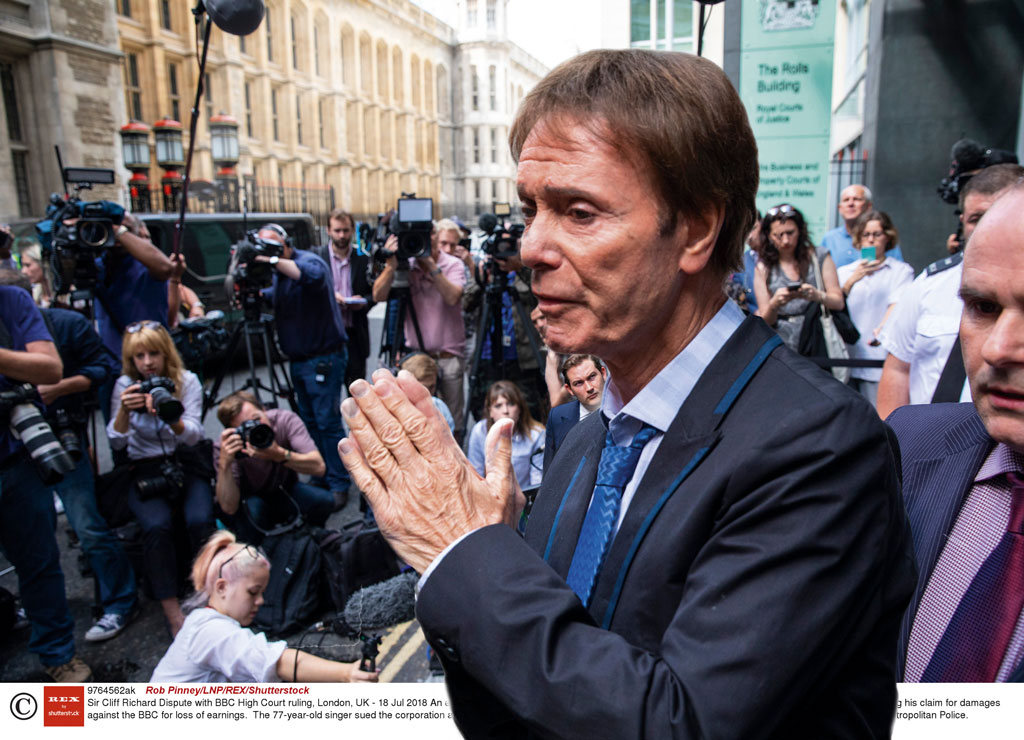
Sir Cliff’s victory will not end the tug of war between press freedom & the rights of individuals, says Athelstane Aamodt
The judgment of Mann J in the case of Sir Cliff Richard v The BBC & The Chief Constable of South Yorkshire Police [2018] EWHC 1837 (Ch) was set to be a hugely pivotal decision in the continual tug-of-war between press freedom and the rights of individuals, and so it proved to be. The judge’s ruling, that the BBC’s coverage of the search of Sir Cliff’s property in Berkshire by South Yorkshire Police in 2014 infringed his right to privacy, and that he is entitled to £210,000 in general damages (the special damage will be assessed later) will have a marked influence on what the press can and cannot say about the investigation of a suspect before arrest. But what will be the extent of that effect? And does this case, as some sections of the press have alleged, really take us down a dark road of unscrutinised police investigations and secrecy?
- The first thing









